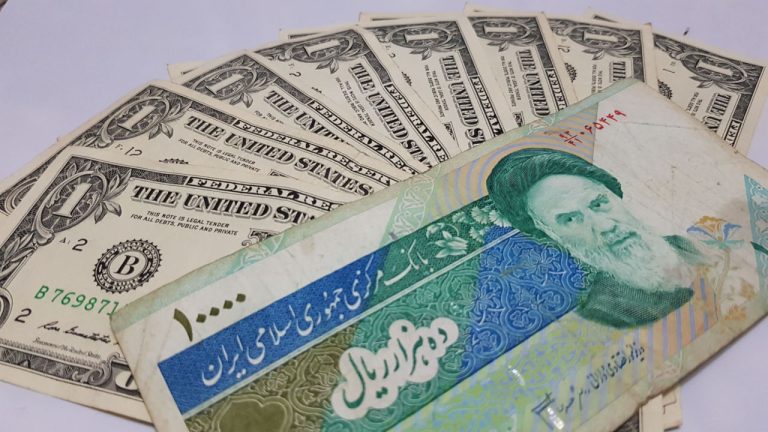President Raisi Calls on Central Bank of Iran to Ditch US Dollar in Trade, Shift to National Currencies
Publikováno: 9.5.2023
 Iranian president Ebrahim Raisi has called on the Central Bank of Iran to lay the groundwork necessary to ditch the U.S. dollar for bilateral trade settlements and to make the switch to use the Iranian real whenever possible. The Central Bank of Iran has already started implementing this policy, proposing to pay bilateral trades using […]
Iranian president Ebrahim Raisi has called on the Central Bank of Iran to lay the groundwork necessary to ditch the U.S. dollar for bilateral trade settlements and to make the switch to use the Iranian real whenever possible. The Central Bank of Iran has already started implementing this policy, proposing to pay bilateral trades using […]

Iranian president Ebrahim Raisi has called on the Central Bank of Iran to lay the groundwork necessary to ditch the U.S. dollar for bilateral trade settlements and to make the switch to use the Iranian real whenever possible. The Central Bank of Iran has already started implementing this policy, proposing to pay bilateral trades using Iranian reals in a recent high-level reunion with Oman’s minister of commerce.
Raisi Calls on Central Bank of Iran to Ditch Dollar
Iranian President Ebrahim Raisi has called for a policy shift when it comes to the use of the U.S. dollar in bilateral trades. On May 7, during a cabinet meeting after his visit to Syria, Raisi discussed the advancement of other countries such as China and Russia in reducing their trade dependence on the U.S. dollar and called for the Central Bank of Iran to lay the groundwork for shifting to the use of local currencies, such as the Iranian real.
Raisi also referred to the strength of the Syrian market, and how the two countries could benefit from a closer integration and trade relationship. He stated:
The Syrian market has a high capacity and capability for Iran to increase the level of trade relations between the two countries.
Raisi recently reiterated that Iran would seek to join the BRICS bloc as a way of undermining the hegemony that the U.S. and other countries exert over the world, contributing to the establishment of a multipolar world in the future.
Central Bank of Iran Moves
The Governor of the Central Bank of Iran, Mohammadreza Farzin, explained that Iran would pursue this proposed policy of ditching the U.S. dollar in trade settlements as a strategic policy.
The announcement, made on May 8 during a high-level meeting with Qais bin Mohammad Al Yousef, the minister of commerce and industry of Oman, remarked that the $1.8 billion bilateral trading balance could even increase with the use of national currencies, according to Farzin.
On the reasons for abandoning the U.S. dollar, Farzin detailed that the U.S. was using its currency as a political tool to put pressure on other countries, explaining this was the reason the usage of other currencies, such as the Chinese yuan, had grown recently. Oman’s representative received the proposal positively, stating that this move would present advantages for both sides.
What do you think about Iran’s move to ditch the US dollar and adopt national currencies for foreign trade settlements instead? Tell us in the comments section below.